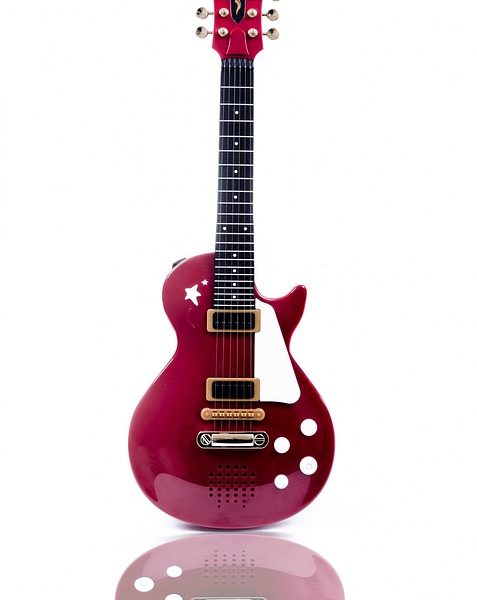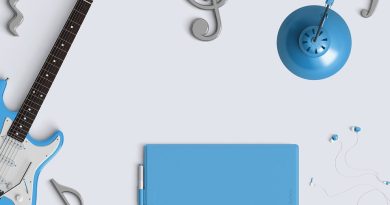Rock out with ease: A beginner’s guide to mastering guitar riffs
Rock out with ease: A beginner’s guide to mastering guitar riffs
When it comes to playing the guitar, one of the most exciting things for beginners is learning how to play guitar riffs. Riffs are the catchy, melodic phrases that form the backbone of many rock songs. Mastering guitar riffs is a crucial step in becoming a proficient guitarist, and with the right approach, even beginners can learn to play them with ease. In this article, we will provide a comprehensive guide for beginners on how to master guitar riffs.
Understanding the basics of guitar riffs
Before we delve into mastering guitar riffs, it’s important to understand what they are. A guitar riff is a short, repeated phrase or melody that is often the main hook of a song. Riffs can be simple or complex, but they are always memorable and catchy. Think of iconic riffs like the opening of “Smoke on the Water” by Deep Purple or the riff in “Sunshine of Your Love” by Cream.
Learning to play guitar riffs involves developing a strong sense of timing, rhythm, and finger dexterity. It requires precision and practice to be able to execute riffs cleanly and accurately. As a beginner, it’s essential to start with simple riffs and gradually work your way up to more complex ones.
Choosing the right guitar and gear
Before you can start mastering guitar riffs, you need to make sure you have the right equipment. A good quality electric guitar is essential for playing rock riffs, as they produce a louder and more aggressive sound than acoustic guitars. Choose a guitar that feels comfortable in your hands and has a sound that you like.
In addition to the guitar, you will also need an amplifier and a guitar pick. Amplifiers come in a variety of sizes and styles, so choose one that suits your playing style and budget. A guitar pick is essential for playing riffs cleanly and accurately, so make sure you have a few on hand.
Getting comfortable with your guitar
Before you can start mastering guitar riffs, you need to get comfortable with your instrument. Spend time getting to know your guitar and how it feels in your hands. Practice holding the guitar in the correct position and getting used to where the frets and strings are located.
It’s also important to work on your finger dexterity and strength. Practice simple exercises like scales and chromatic runs to improve your finger coordination and agility. The more comfortable you are with your guitar, the easier it will be to master guitar riffs.
Learning to read guitar tabs
Guitar tabs are a simple and easy way to learn how to play guitar riffs. Tabs are a form of musical notation that uses numbers to indicate which frets to press and which strings to play. Tabs are a great way for beginners to learn riffs quickly and effectively.
To read guitar tabs, simply look at the numbers on the strings, which indicate which frets to press down. Start by practicing simple riffs with tabs and gradually work your way up to more complex ones. With practice, you will become more comfortable reading tabs and playing riffs with ease.
Practicing with a metronome
One of the most important aspects of mastering guitar riffs is developing a strong sense of timing and rhythm. Practicing with a metronome is a great way to improve your timing and ensure that you are playing riffs accurately and consistently.
Start by setting the metronome to a slow tempo and practice playing riffs along with the beat. Focus on keeping in time with the metronome and playing each note cleanly and accurately. As you become more comfortable, gradually increase the tempo and challenge yourself to play riffs at faster speeds.
Learning from the pros
One of the best ways to master guitar riffs is to learn from the pros. Study the playing styles of legendary guitarists like Jimi Hendrix, Jimmy Page, and Eric Clapton. Watch live performances and tutorials to see how they play riffs and incorporate their techniques into your own playing.
Don’t be afraid to experiment and try new things. Put your own spin on classic riffs and create your own unique sound. The more you practice and play, the more confident and proficient you will become at mastering guitar riffs.
Conclusion
Mastering guitar riffs is a rewarding and challenging journey for beginners. With the right approach and dedication, even novice guitarists can learn to play riffs with ease. Start by understanding the basics of guitar riffs, choosing the right equipment, and getting comfortable with your guitar. Practice reading guitar tabs, playing with a metronome, and learning from the pros to improve your skills and become a master of guitar riffs. Rock out with ease and impress your friends and audiences with your newfound abilities on the guitar.






